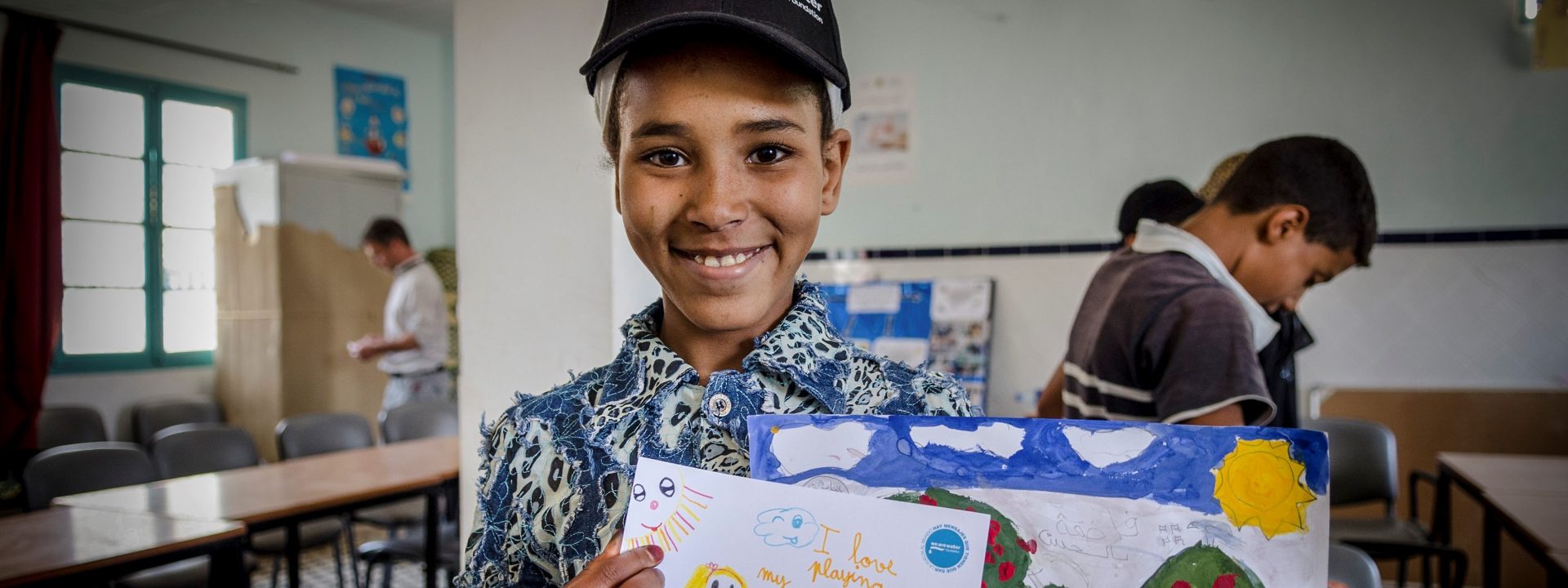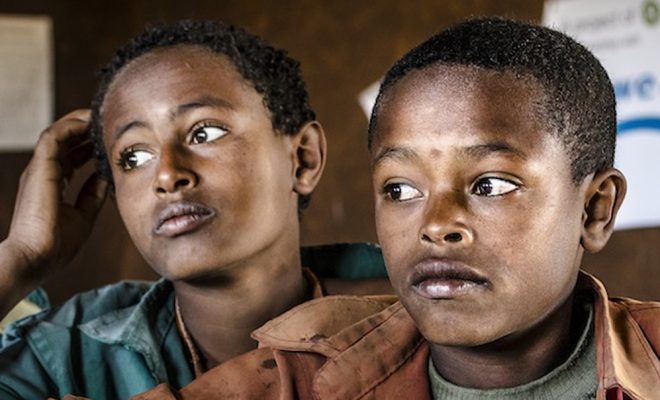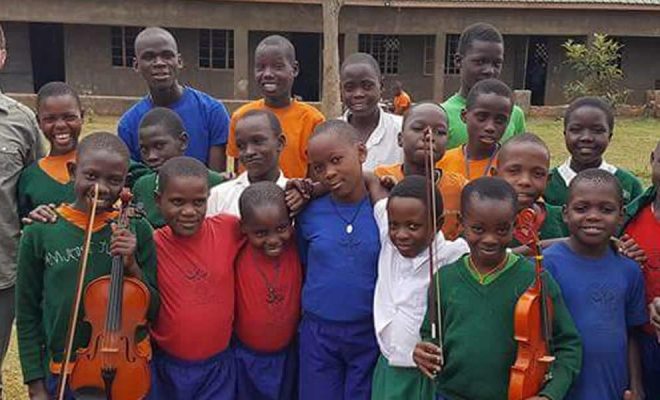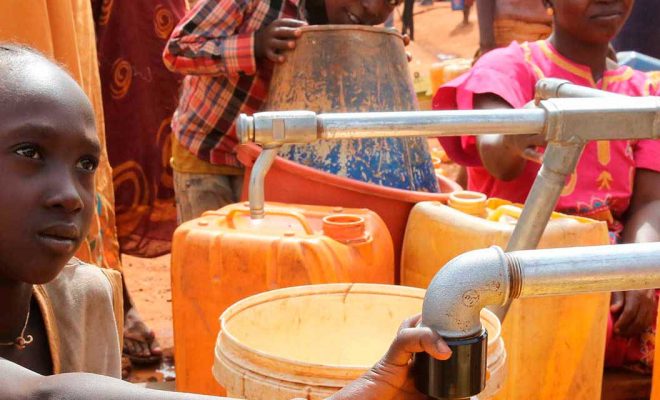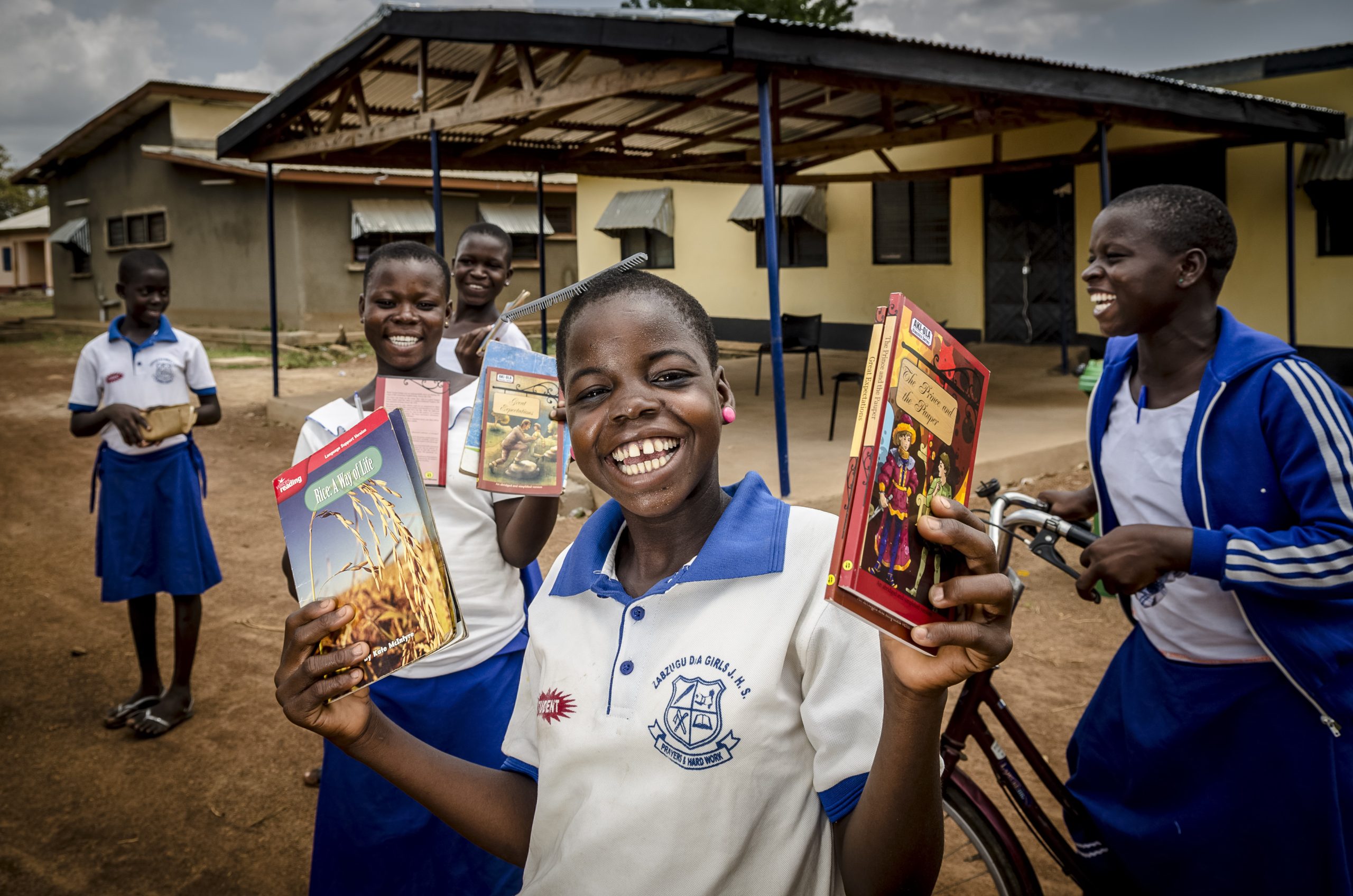
Ghanan school © Carlos Garriga/ We Are Water Foundation
Teleworking, telemedicine, tele-education… establishing a distance in key human activities has been a useful resource to overcome the acute phase of the crisis in communities that suffered the first impact of the pandemic. These belong mainly to digitally developed countries where the “discovery” of the benefits that the prefix “tele” can bring to industrial societies is seen as an essential factor in the recovery from the economic crisis that has already begun: fewer hours lost in commuting to work, less pollution, greater health control and more capacity to access education. A new socio-economy in which the god of technology once again increases its value.
But few have remembered that only half the planet has Internet access. The United Nations Development Programme (UNPD) has done so in a , in which, in addition to pointing out the existing digital gap in the world, it warns of the serious setback foreseen in the Human Development Index (HDI), the indicator that has been universally accepted as one of the references for evaluating progress towards the Sustainable Development Goals (SDGs).
Educational disruption, long-term poverty
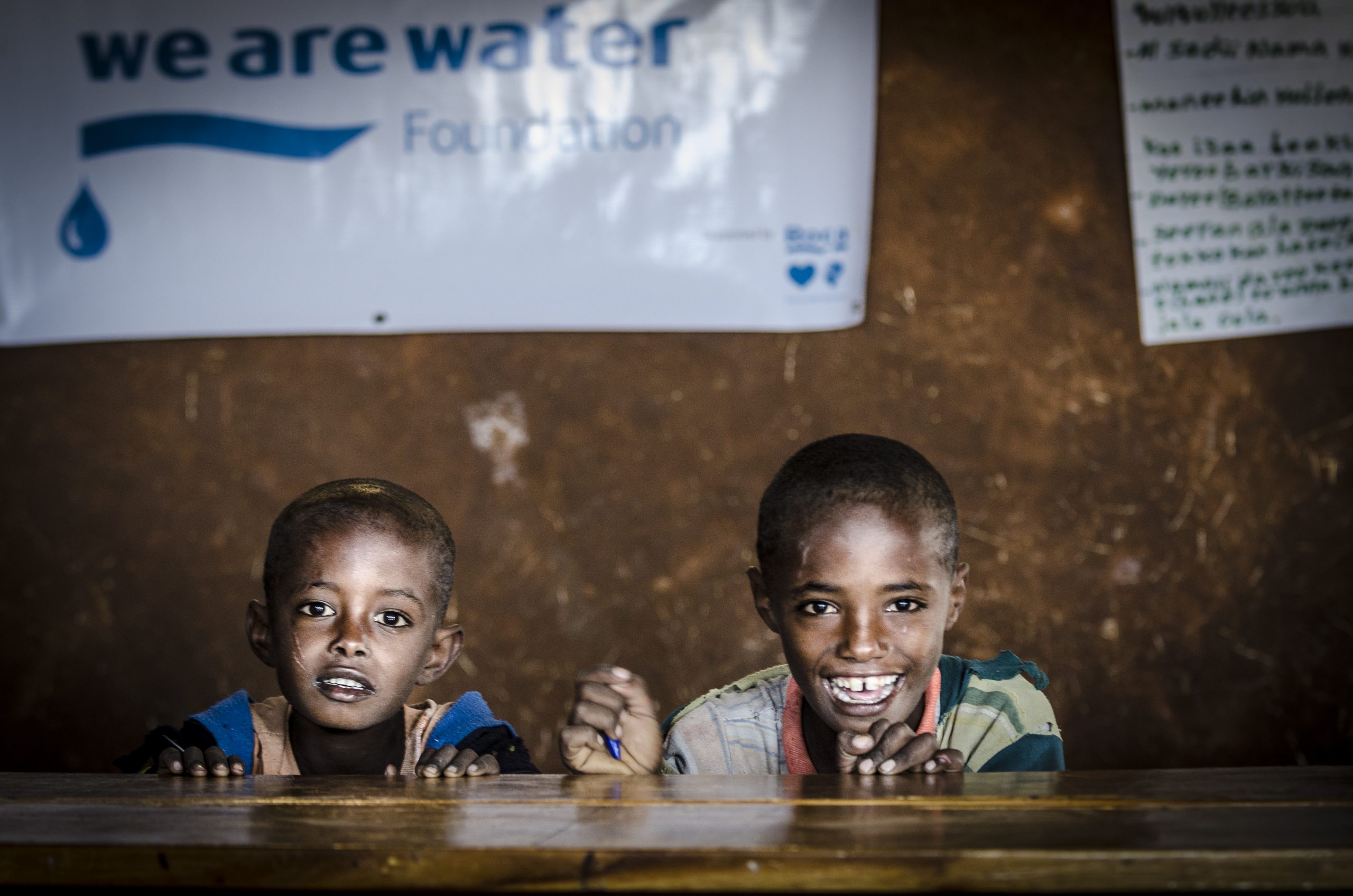
School in Ethiopia © Carlos Garriga/ We Are Water Foundation
According to the UNDP, for the first time since 1990, the development of humanity is going backwards. Estimates point to a 4% drop in global per capita income by 2020. According to the report, this decline will erode the gains of the last six years and impact simultaneously on all the main variables with which the HDI is assessed: people’s incomes, health and education.
Several observatories of the crisis triggered by the pandemic, such as the Johns Hopkins University, point out that many poor countries have copied the type of blockades imposed by the Governments of developed countries without taking into account that their socio-economic circumstances are very different. Wealthier societies are much more likely to have distance work and education, thanks to the massive and advanced use of the Internet. This will cushion the impact of the crisis and encourage economic recovery and, above all, has made it possible to avoid radical educational disruption, which according to the UNDP and the World Bank is one of the worst burdens the pandemic may leave behind in poor countries.
One of the indicators used by UNDP is the “effective drop-out rate”: the percentage of boys and girls of primary school age, calculated to reflect those without access to the Internet. According to the report, this rate has reached 60% with the pandemic, which means a global decline to levels not seen since the 1980s.
The testimony of the world of water
It is well known among those working to achieve access to water and sanitation that no sustainable achievements are possible without education. This is evident in all of the Foundation’s projects, especially those with a direct impact on schools, where education in hygiene and in the water cycle is a key factor for the development of self-management skills. Only with this knowledge can the sustainability of the facilities be achieved, an essential factor for the full achievement of their benefits and their transmission to the rest of the community.
For children in areas without access to water and sanitation, education is the only tool that can empower them to manage their survival and their future. With knowledge of hygiene, the comprehensive water cycle and sanitation needs, school children also become agents of change towards sustainability. The Foundation’s projects such as those in the schools of Bolivia’s Chaco-Chuquisaqueño, in collaboration with UNICEF, or the Wakiso orphanage in Uganda with World Vision, reveal the importance of maintaining educational standards in communities living below the poverty line.
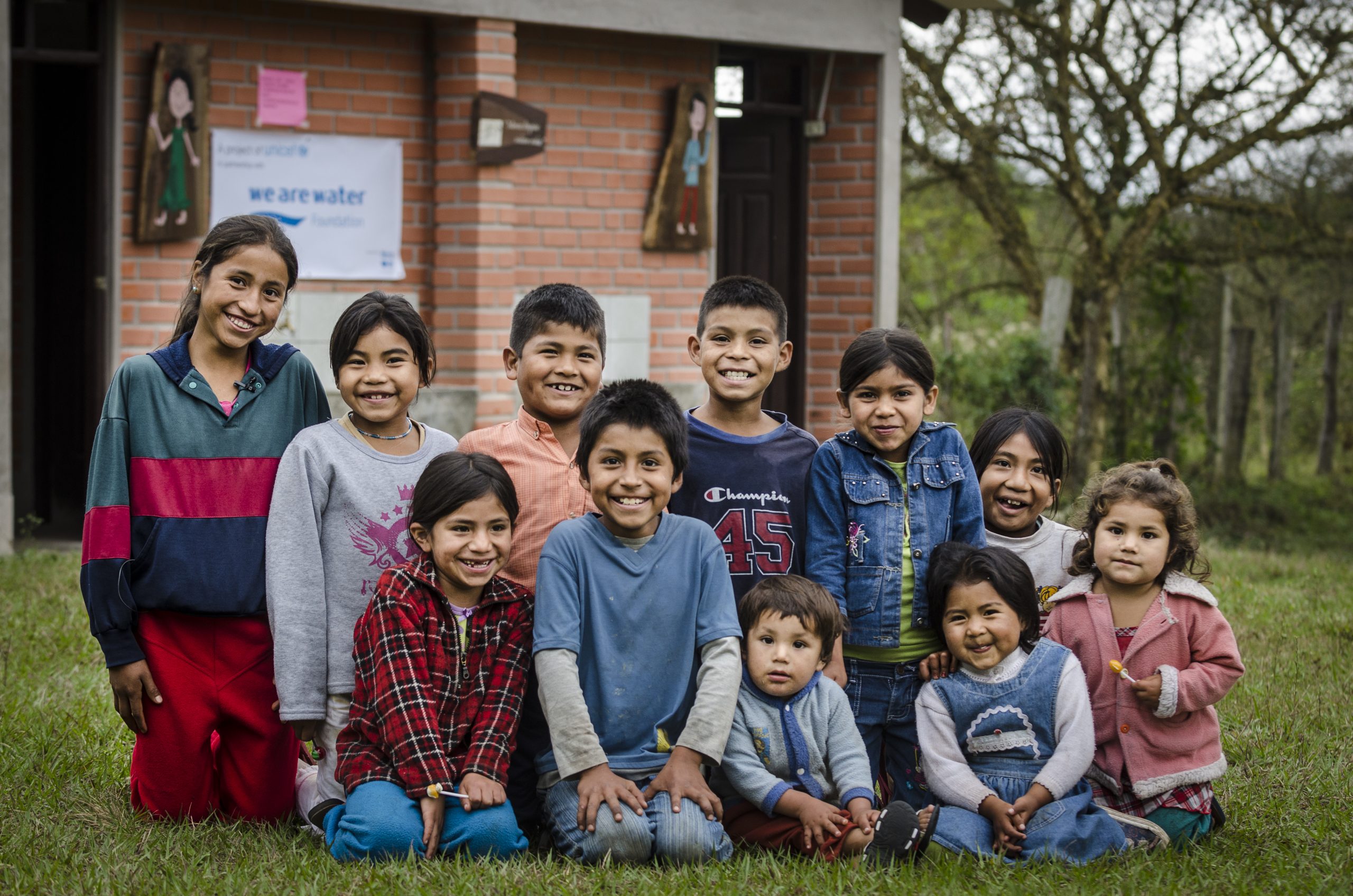
Students of Chaco-Chuquisaqueño © Carlos Garriga/ We Are Water Foundation
Closing the digital gap
In rich countries, confinement has encouraged online habits, increasing the value and spreading activities that were previously preferable for much more specific and reduced sectors of the population. Webminars, group discussions by video conference, how to videos and tools of greater scope and content such as MOOC (Massive Online Open Courses), have dramatically increased and have allowed schoolchildren and university students not to be left behind in the educational process. The media in industrialized countries have enthusiastically shown these advances of the “digital society”, presenting them as hopeful tools for the development of knowledge and for the fight against climate change.
This has not been possible in most countries in Sub-Saharan Africa and South Asia, and in large areas of Central and South America, where online connections are non-existent. In their recent statements, UNDP and the World Bank express their concern that the digital gap is preventing the recovery of the educational cycle. Closing this gap, which also affects the general development of the economy of the poor, is one of the urgent actions to avoid one of the worst consequences of the current pandemic: educational disruption.
According to UNDP, closing the digital gap would reduce the number of children currently not receiving an education by more than two-thirds due to school closures. It calls for international collaboration and calls on countries with financial resources to invest quickly in the capacities of developing countries.
Rich countries are passing economic packages because they have the capacity to get into debt: countries on the other side of the digital gap do not have these resources and their economies are falling into the abyss. According to World Bank reports, if the countries that have issued this aid because of the pandemic were to allocate only 1% of it to closing the digital gap, the current inequalities in education could be ended. Mankind needs this in order to achieve the SDGs and not go backwards.


